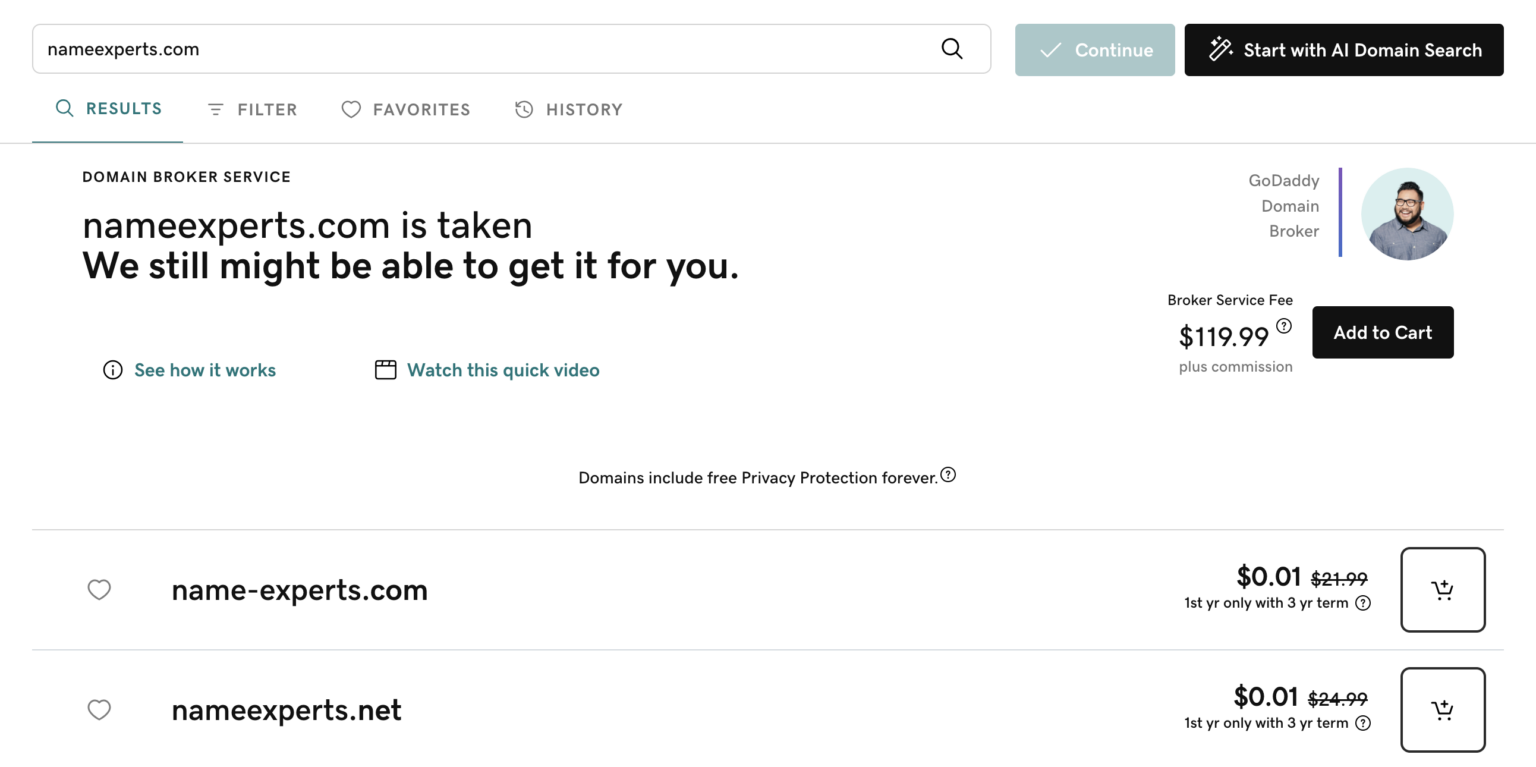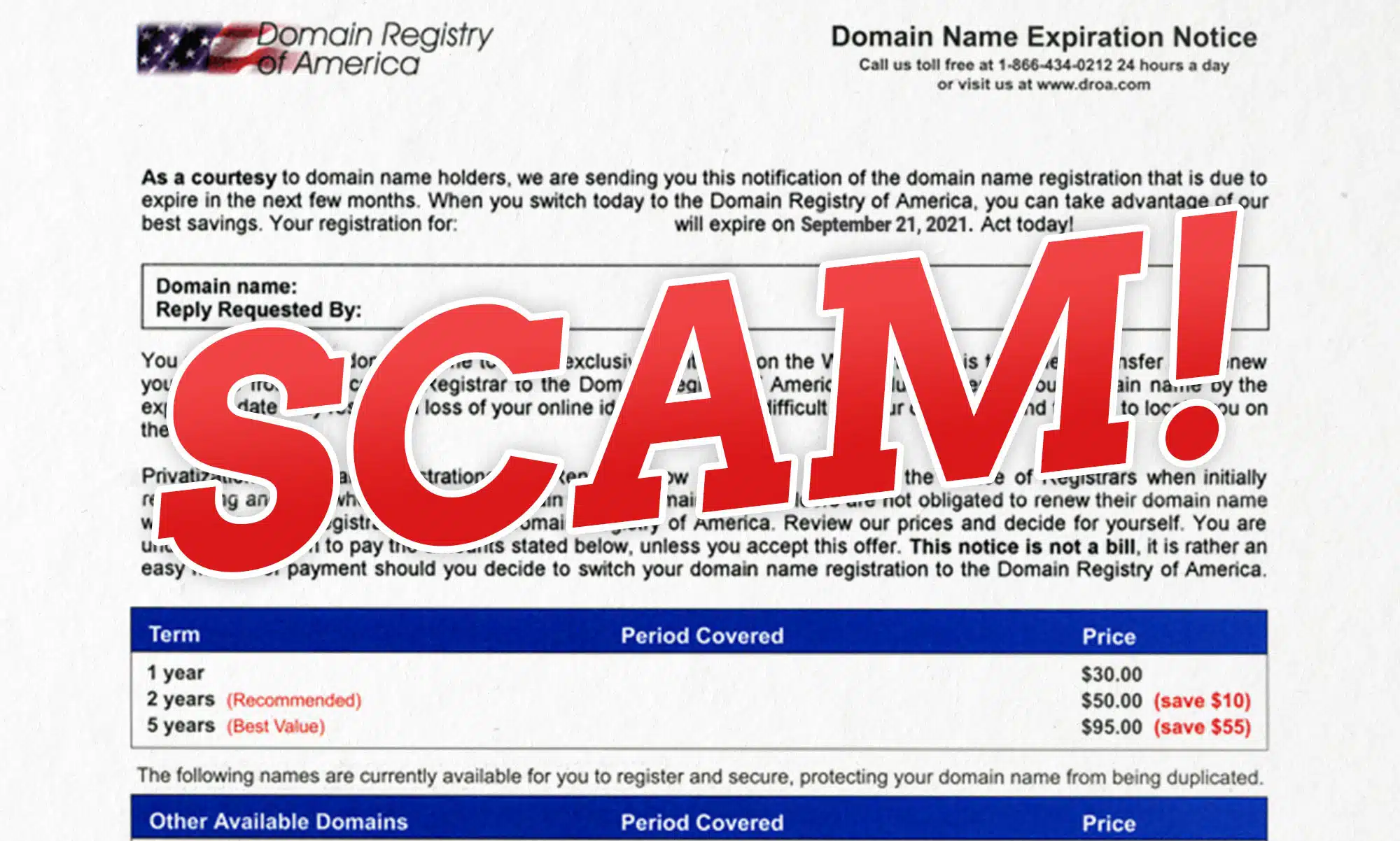How to Buy a Domain Name – 10 Tips to Follow Before Buying
Picking a domain name for your brand should be given the respect it deserves. After all, says NameExperts.com Director Joe Uddeme, it could make or break your business. Among the most crucial decisions in establishing an internet presence is picking a domain name to buy. Ignore the trends and fads of the day and pick a name that makes sense for your company or subject matter a decade from now. When you choose well, you can rest assured that you have a valuable piece of digital real estate that is woven into the overall success of your business. Here are 10 suggestions that will help you to make a fantastic domain name purchase. 1. Do your homework Just a small amount of research can go a long way when buying a domain name. Find similar websites and check out your competitors’ domains using a website like Compete.com. Use dnpric to determine when a domain name was last sold, for how much, and the web hosting agent. You can search by keyword, which will help provide the popularity of particular words in a domain name. While any research is better than none, plan to put aside days or even weeks to properly research the right name for your brand – something that will help it to grow. If you need some guidance and an insider’s eye, an experienced domain broker can help you come up with – and secure – the perfect name for you. 2. Buy a domain name people can remember Even if you’re planning on optimizing the website for search engines so that it can be found when people search for “used boats in Dallas” or “hair styling near me”, you still need a domain name that individuals can remember and type. Anyone hearing your name needs to know how to get right to your business without you having to say things like “the number 4,” and “dash-dash.” It’s also wise to avoid words that have more than one spelling if your customers are likely to be confused and type in the wrong name. Alternately, you can purchase both versions of the name and guide visitors to the one you prefer – safe in the knowledge that your backup site will scoop them up if they make a mistake. Avoid anything mysterious like “voodrifunk” or “flambinastic” that might sound fun but is so out there that people will have difficulty remembering it. 3. Avoid slang terms Stay away from slang terms and instead select a name that will continue to be meaningful in ten years. This may also help your title be known and remembered by non-native speakers. Even if you don’t intend to conduct business globally, this strategy can help your neighborhood audience also. 4. Purchase a domain that is shorter rather than longer The longer your domain name is, the harder it is for people to remember. And the greater chance you have of someone misspelling some of the words. Most good single word domains are long gone (read “what do to if the domain name you want is taken“), but it’s still possible to avoid super-long alternatives by getting a little creative. For those who have one word in mind that’s not available, consider adding an adjective or verb in front of it and seeing if those variations are available. Perhaps not “GetAppple”, as that would likely lead to a world of trademark issues and other legalities, but you get the idea. Think of your domain name as part of your brand, and be sure it matches how you want visitors to consider you. 5. Stick with .com if you’re able to Most individuals assume that a domain name ends in .com – it’s just become the default for most of us. If you purchase a domain name with a different extension or “TLD” as they are known (.net, .info, .org, etc.), you will have some additional work to do if you want to get people to keep you in mind. However, do not automatically assume you should only ever buy .com domains. Many websites have done very well with different extensions – such as last.fm 6. Do not buy trademarked domains Even if you’re not intentionally trying to create confusion, you are most likely to face some legal challenges by purchasing trademarked terms in your domain name. To be safe, look for U.S. trademarks at www.uspto.gov and be sure no one owns a trademark on the name you’re contemplating. 7. Do not buy a domain name that is too similar to an existing website Even if the wording, name or expression in the domain name that has caught your eye is not trademarked, do not buy it if is is merely a variation of some other domain name. This applies to plurals if the singular is taken (mediatemple.net vs. mediatemples.net) and hyphenating a term (media-temple.net). 8. Avoid buying hyphen domain names If you have to go with hyphens, do not buy a domain with more than three of them. It is just too messy. 9. Avoid numbers People may get confused about whether the amount is a digit (3) or a word (three). If you would like a number on your domain name because there’s a number in your organization’s name, purchase both versions (word and digit ) and redirect one to the other. 10. Check availability on social networking sites When you’ve got a name picked out, see if this word or phrase can be found on social networking sites like YouTube, Twitter, Facebook, Instagram, Pinterest, Google+, and Tumblr. Even if you don’t intend on using social media straight away, you will want the option when you are ready, and it is easiest if you can use the identical phrase on each website. About the author Joe Uddeme is Director and Principal of Name Experts, one of the world’s leading domain name brokerage services. He has overseen domain name sales and acquisitions totaling more than $150 million and is renowned worldwide as a go-to expert in buying and selling premium domains. Contact us at: [email protected]






